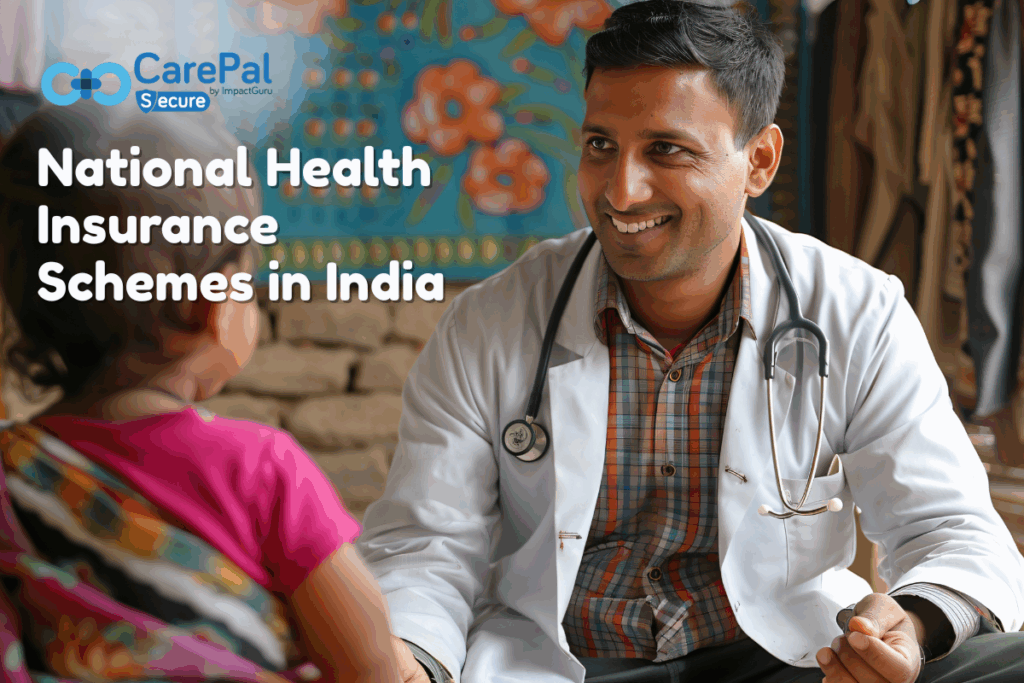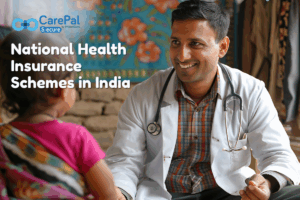The Role of Health Insurance in
Managing Hypertension

Hypertension or High Blood Pressure is a raging pandemic in India. As per some reports, 1 out 3 Indian adults in the age group of 18 to 55 is suffering from hypertension. And what makes this situation even more serious is that most of these people are not on any hypertension treatments or any its medication. That’s because of the belief that hypertension happens only after a certain age (around 50) and its symptoms like increased heartbeat, difficulty in breathing etc. are easy to notice. Fact is that hypertension is called a silent killer by medical professional because there are no definitive its symptoms. Often, it keeps developing over the years and causes damage to the body. And by the time people being its treatment, it is often a case of too little and too late. In this article we will go through what is hypertension, what are causes of it, common hypertension medication and the role that insurers can play in mitigating the risk to their customers from hypertension related diseases.

What is hypertension and what are hypertension symptoms?
Blood is the basis of life and its circulation in the body is what enables a flow of nutrition, antibodies, hormones, oxygen and elimination of waste, among many other functions. For this flow to maintain the heart needs to pump the blood which it does throughout your life (about 2.5 to 3 billion times in your lifetime). The two phases of heart beat are called systole (when heart contracts to push the blood out) and diastole (when it relaxes and refills). The difference between these two, in layman terms, is your blood pressure. Generally, a reading of 120/80 is considered healthy. Anything over it and you should consult doctors for medication and changes in lifestyle to cut out known risk factors.
What are causes of hypertension?
First thing to understand is that hypertension is not a disease but a condition. Hence it does not have causes like virus, bacteria, accident, etc. Instead, it has risk factors which predispose a person to hypertension.
- Unhealthy lifestyle: Alcohol consumption, Smoking, Food items high in salt, lack of exercise.
- Obesity: High obesity is directly correlated with high blood pressure.
- Age 60 and older. However, now even younger adults are getting high BP.
- Genetics also plays an important role in hypertension.
What are common hypertension medication?
The medication works in two major ways. Some of the hypertension medication works by dissolving the blockages in your blood while other medicines work on widening the arteries with the same basic objective of easing the flow of blood to and from heart. The exact medicine that you are prescribed is a function of the intensity of the problem as well as your age, health, profession and other conditions. While the medicine is useful in combating the immediate causes, they work much better if you can make some basic changes in your eating habits and lifestyle.
- Keep Obesity in check. Most people aim for a good BMI. But a much more accurate measure is waist to height ratio. This should ideally be less than 0.5.
- Stop smoking and limit alcohol consumption. No amount of alcohol or smoking can be considered safe.
- Eat well balances healthy diet rich in nutrients, high in fibre and low in salt and saturated fats.
- Regularly monitor your BP as blood pressure problems will often have no symptoms.
- Active Lifestyle is not only good for cardiovascular system it is also a proven method to reduce mental stress.
Do Insurers have a role in reducing the hypertension related risks for their customers?
We believe that health insurance companies can and should play a proactive role in managing hypertension related risks for their customers. Hypertension is one of the primary cause of heart and kidney related diseases. And more hypertension treatments can begin at an early stage, the better their customers will be able to prevent serious illnesses like heart attack, strokes and kidney failures, which are strongly related to hypertension. This will be a win for the insurer as well, because healthier customers will mean fewer insurance claims, thus boosting their profitability. Also, a customer who believes that the insurer has been instrumental in making a positive difference to their lives is likely to stay stick round for long and also recommend the insurer to his friends and family.
Some ways that an insurer can help with hypertension related complications for their customers are:
- Raise awareness of causes of hypertension, known hypertension symptoms, and hypertension medication. Customers tend to place a lot of trust in their chosen insurers’ technical knowhow.
- Use smart wearables data to monitor any irregularities as well as long-term readings. This will require integration of customer’s wearables with apps of insurers. This is something some insurers in India have started in the last few years. This is boosted by organising free basic diagnostics for the customer on occasion like policy renewal, etc.
- Build a health ecosystem which not only encourages healthier choices and active lifestyle but also builds a reward system. This integration in the activity of daily lives builds a much more frequent brand interaction for the customer as compared to a traditional insurance model, where the interaction is mainly at time of renewal or at times of claims. This is an approach that Discovery Life in South Africa has used to great effect.
It is not a matter to be taken lightly. However, with proactive testing, healthy and active lifestyle, you can live tension free.
Frequently Asked Questions
Good digestion ensures proper nutrient absorption, strengthens immunity, and boosts energy levels. It also prevents complications like weight gain, hormonal imbalances, and chronic diseases.
Consider the insurer’s financial stability, claims process, coverage terms, and inclusion of services like teleconsultation and diagnostic tests. These factors ensure smooth access to care and timely claim settlements.
Poor digestion can cause nutrient deficiencies, weakening the immune system and leading to fatigue. It’s also linked to weight gain, diabetes, and mental health issues.
Adopt a balanced diet rich in fiber and fermented foods, quit smoking, avoid alcohol, exercise regularly, and manage stress to support healthy digestion.
It offers comprehensive benefits, including hospitalization, diagnostic tests, and teleconsultation, with a reduced waiting period for pre-existing conditions and cashless treatments.
Hi, my name is Om, and I am a developer at Carepal Secure. With a strong passion for technology and innovation, I enjoy creating effective solutions and learning new skills to enhance my expertise. My journey in development has been both challenging and rewarding, allowing me to grow professionally while contributing meaningfully to the projects I work on.












